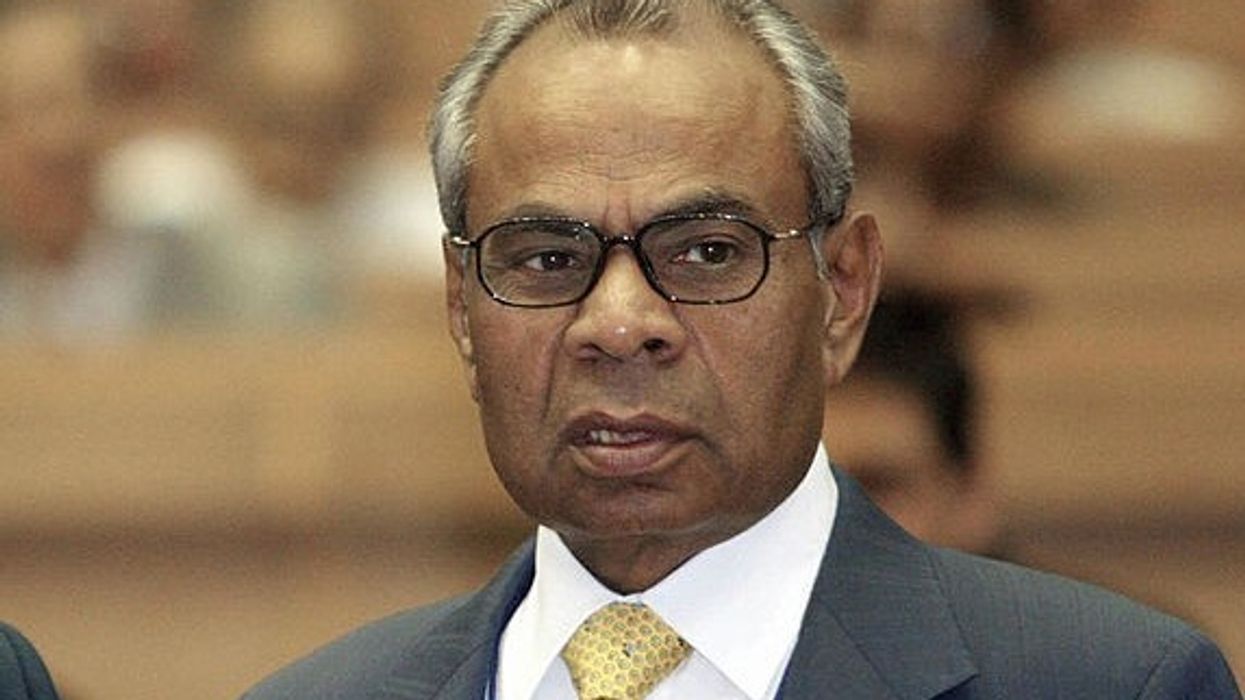Srichand Parmanand Hinduja, the eldest of the four Hinduja brothers and chairman of Hinduja Group, died in London on Wednesday (17). He was unwell for some time. He was 87.
"Gopichand, Prakash, Ashok and the whole Hinduja family with a heavy heart regret to announce the passing away of our family patriarch, and chairman of Hinduja Group, Mr S P Hinduja today," a spokesperson for the family said.
"SP Hinduja was a visionary and mentor to the family bestowing the founding principles and values of our late father, PD Hinduja. He played a very important role alongside his brothers in building a strong relationship between his host country, the UK and his home country, India," the spokesperson added.
"A titan amongst his peers, S P Hinduja truly lived and embodied the Hinduja Group’s founding principles and values. A deeply spiritual and philanthropic person, he was courageous in action and generous at heart. His loss has left a huge void as the brothers have always been four bodies and one soul."
His children Shanu and Vinoo Hinduja said, "It is with deep sadness that we announce the passing of our father SP Hinduja. SP was a visionary titan of industry and business, humanitarian and philanthropist ... He touched countless lives on his path, and we are forever grateful for the time we cherished with him."
Hinduja was born in 1935 in Karachi, Sindh province in British India. He was educated at Davar's College of Commerce and RD National College in Mumbai.
He was the second son of Parmanand Deepchand Hinduja and Jamuna Parmanand Hinduja.
The family business was founded by Parmanand who traded in tea and dried fruit in Mumbai in 1919 before moving it to Iran.
Hinduja began his career in his father's textile and trading businesses in Mumbai and Tehran, Iran. His successful businesses in his early career included the sale of food commodities (onions and potatoes) and iron ore from India to Iran.
The brothers took over in the 1960s and greatly expanded the business.
With the acquisition of Ashok Leyland (from British Leyland) and Gulf Oil (from Chevron) in the 1980s and the establishment of banks in Switzerland and India in the 1990s, Hinduja became one of India's best known business tycoons.
According to reports, Hinduja was a teetotaler and a strict vegetarian. He was known to bring his own vegetarian food to the Queen's banquets at Buckingham Palace.
His wife, Madhu, died in January this year.
The Hinduja Family topped the Asian Rich List 2022 published by Eastern Eye with an estimated wealth of £30.5 billion.
The Group now spans interests in power, oil and gas, banking, healthcare and employs roughly 200,000 people worldwide.
(With inputs from Agencies)





